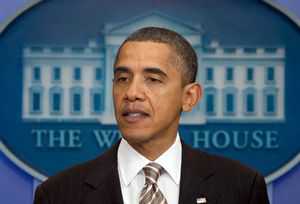Paul Goble
Kuressaare, November 18 – Despite the human suffering it is bringing, the current financial crisis may force Moscow to make concessions to non-Russian groups because in the past, the Russian government – tsarist, Soviet and post-Soviet — has done so “only when the state has serious problems,” according to a senior Tatar politician.
In an interview with Rosbaltvolga.ru, Razil’ Valeyev, who chairs the nationality policy committee in the State Council of the Republic of Tatarstan, pointed out that Moscow created the non-Russian republics after the 1917 revolution and opened “hundreds” of non-Russian language newspapers during World War II (www.rosbaltvolga.ru/2008/11/17/542241.html).
Consequently, Valeyev argued, one should not exclude the possibility that as the economic crisis deepens, it will lead the central government to address some of the problems of the non-Russians in the country, perhaps in the first instance reversing what he calls the “unconstitutional” elimination of non-Russian courses from required educational programs.
If the law goes into force, Regions and republics would still be allowed to offer non-Russian language and local history courses, but they would no longer be able to require them. And consequently, some students and their parents would thus be inclined to choose to study other courses instead, something that would strike a blow at many non-Russian groups.
“The exclusion of the national-regional component from the federal education standards [scheduled to take place in 2009] directly contradicts the Russian Constitution,” he said. “And if we do not follow the provisions of our own constitution as any state based on law does, then what kind of a country are we?”
Valeyev pointed out that Tatarstan has been fighting this step for several years and not long ago sent an appeal not only to Moscow but to all the federal subjects asking that it be reversed as unconstitutional. So far, he says, 21 other subjects – including some Russian ones — support Tatarstan’s position, but until recently, it seemed unlikely Moscow would change course.
One of the reasons the Russian government has adopted this policy, the Tatar State Council committee chairman continues, is that “empire-forming peoples cannot understand the problems of other peoples.” While there are exceptions, of course, “the majority of government officials are not among them.”
Asked whether he was fighting against globalization, Valeyev said that “globalization is affecting everyone and not just the Tatars,” and many Tatars now send their children to Russian language schools so that they can pursue the careers that such educations offer in the country as a whole.
Even more will do so if non-Russian subjects become optional because they will see that Moscow has a negative attitude toward national education and “understand that if they do not change, their children will not become part of contemporary realities and participate in the state’s mentality.”
There are other reasons parents are making these decisions. Many Tatar schools were opened only a few years ago and often lack the facilities Russian-language schools there have. That has made the Turkic-Tatar lycees that Ankara opened in the republic far more important than they otherwise would be, lycees that Moscow unfortunately is trying to close.
Asked to respond to suggestions that Tatar national identity is too focused on the past rather than the future, Valeyev said that peoples like the Tatars who have been deprived of statehood and who fear they may not recover it naturally look back to the time when they had it, especially if they have been denied the chance to do so as the Tatars were in Soviet times.
Valeyev said that the Tatars do not want the Russian Federation to fall apart but rather to be strengthened, however much Russian nationalists think otherwise, but at the same time, he noted, the Tatars want Moscow to respect their constitutional rights, something the center is not always doing.
But “if Russia wants to preserve its future and to be strengthened, then it must turn particular attention “to the issues the Tatars raise. “We are not going to go anywhere, we do not have a second state.” And consequently, Tatars and Russians must cooperate if they are to have a good future together.
At present, Valeyev stressed, Tatarstan is “resolving many questions more or less normally. We are concerned most of all about the status of Tatars living beyond the borders of the republic [where most ethnic Tatars live and] who have enormous problems in the sphere of preserving language and culture.”
“If Russia were to adopt a new, democratic conception of nationality policy … and the laws and decrees needed for its realization, then there would not be any special problems” in the relationship between Moscow and Kazan, Valeyev said, adding that “I have not lost hope that we despite everything will come to that.”
“Russia too ought to have an instinct for self-preservation,” he continued. If, however, it is completely lost, then additional complications will appear. But the process of the rebirth of national consciousness is not something that happens over night.” Thus, there is time, but it is not unlimited, perhaps no more than “20 or 30 years.”
Russia needs to become what it is, the common home of Slavic and Turkic peoples, he argued in conclusion. And he said that was not as impossible as it might seem: “Who could have thought that the Soviet Union would fall apart and in its place would arise independent states – Kyrgyzstan, Kazakhstan, Turkmenistan and so on, not to mention Abkhazia and South Ossetia.”
http://windowoneurasia.blogspot.com/2008/11/window-on-eurasia-financial-crisis-may.html



